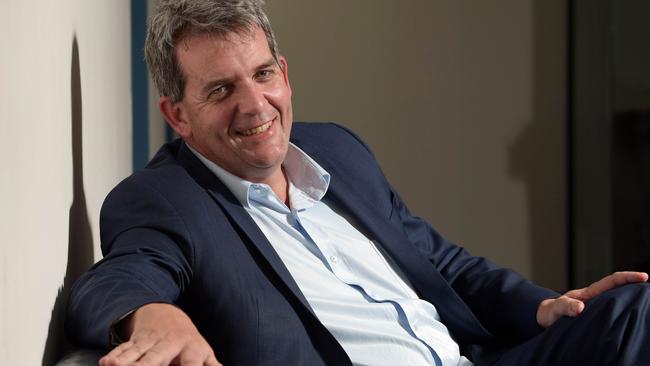South Western Sydney Primary Health Network chief Rene Pennock quits on a high note and decides to shift gears at 50
RENE Pennock took his father George’s advice when he decided to “jump off the treadmill and rethink everything” at age 50.

Macarthur
Don't miss out on the headlines from Macarthur. Followed categories will be added to My News.
- Siarn White pours her chef skills into inspiring students
- Beverley Park School principal Jacqueline Lockyer helps students of all abilities have the best start in life
ELDERSLIE’S Rene Pennock took his father George’s advice when he decided to “jump off the treadmill and rethink everything” at age 50.
Mr Pennock, now 50, has done just that and today closed the door on his career as chief executive at Campbelltown’s South Western Sydney Primary Health Network (SWSPHN).
He started working at the organisation, which was then known as the Macarthur Division of General Practice, as its executive director 13½ years ago in January 2004.
Under his watch, the organisation has grown from one with an annual turnover of $1 million and evolved to become SWSPHN in May last year, with an annual turnover of $26 million.
“I’m leaving with mixed emotions but the organisation is going gangbusters. The people left behind will carry on and do better things,” Mr Pennock said.
“In all honesty, I have been gifted throughout those years with wonderful staff and boards who allowed me to lead the organisations I represented, with a significant degree of autonomy, respect and trust.”

The father of one, who is married to wife Jo, said he was looking forward to taking a break for six months and spending more time with his family and then looking at other opportunities in the health sector.
Mr Pennock, who previously worked as a physiotherapist, grew up in Sydney’s north and said he was attracted to live and work in the Macarthur area because the people were real.
His and the organisation’s successes are many and notably include improving access to quality primary care and improving the health of the community.
“One of the things that stands out for me is we improved access to after-hours primary care enabling region wide access to 24/7 care,” he said.
Another achievement is the organisation’s work with One Door, formerly the Schizophrenia Fellowship NSW, which has resulted in improved access to care for people with a severe and chronic mental illness.
As a result, more than 20 organisations have signed a memorandum of understanding and charter to work together for the long haul.
Mr Pennock is also proud that over many years, the division and now SWSPHN has improved immunisation rates in the region from 86 per cent to 94 per cent overall.
“We are the envy of the state when it comes to integrating with our acute-care colleagues,” he said.
“Some notable achievements are the Wollondilly Health Alliance, Health Pathways, Oran Park Family Health and recently embarking on a project called IRAD, which over time will see our clinicians, both private and public, accessing the clinical information they need in real time.”
Another achievement is the organisation’s national and award-winning Healthy Eating Activities and Lifestyle program.
More than 50 local government areas have bought the licence for the HEAL program and about 1200 providers have been trained.
Mr Pennock will be replaced by acting CEO Keith McDonald until a permanent CEO is finalised by the end of September.


